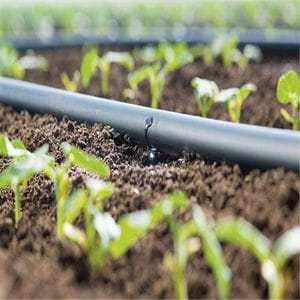Greenhouse Agronomy and Irrigation Solutions in Kenya

Greenhouse agronomy in Kenya has advanced through the integration of new strategies and techniques. Agronomy is a protective cultivation technique that helps farmers understand a plant's nutritional requirements, diseases, and pests that can affect the plant. Greenhouse cultivation creates an artificial environment that provides optimal conditions for plant growth.
Ultramodern greenhouses are constructed from wooden or metallic frames, covered by ultraviolet polymer films, and supported by a reliable water source. Machinery like irrigation systems and ventilators are used, requiring expert knowledge and stable financing for continuous research and experiments.
To achieve food security, enhance modern farming techniques, and conserve soil, farmers need to integrate greenhouse agronomy into agriculture.
Best Greenhouse Cultural Practices in Kenya
Greenhouse cultivation in Kenya can be a profitable venture when best practices are followed. Here are some key cultural practices for successful greenhouse farming in Kenya:
Proper Irrigation:
- Consistent watering is crucial to greenhouse farming.
- Over watering or under watering can be detrimental to plants.
- Irrigation systems such as drip irrigation or misting systems should be used to ensure the right amount of water is delivered to the plants.
Soil Management:
- Soil preparation is key to the success of greenhouse cultivation.
- Soil should be tested to determine its pH and nutrient content.
- Organic fertilizers should be used to improve soil fertility.
Pest and Disease Management:
- Regular scouting and monitoring for pests and diseases is important.
- Integrated Pest Management (IPM) should be adopted for controlling pests and diseases.
- This involves the use of cultural, biological, and chemical control methods.
Proper Ventilation:
- Proper ventilation helps to control temperature and humidity in the greenhouse.
- Natural ventilation, fans, and cooling systems can be used to achieve the right ventilation.
Crop Rotation:
- Crop rotation helps to reduce the build-up of pests and diseases in the soil.
- It also helps to balance the nutrient content in the soil.
Regular Cleaning:
- Regular cleaning of the greenhouse and equipment is important to prevent the build-up of pests and diseases.
- Proper waste management should be adopted to prevent the accumulation of debris.
By following these best cultural practices, greenhouse farmers in Kenya can increase their yield and profitability while reducing the risk of crop failure.



.png)


 20%
20%



Greenhouse film is a specialized plastic covering designed to create an optimal environment for plant growth by regulating temperature, humidity, and light transmission. Made from polyethylene or other UV-resistant materials, it protects crops from harsh weather, pests, and excessive sunlight Greenhouse Plastic Films Manufacturer in Gujarat enhances agricultural productivity by extending growing seasons and improving yield quality. Available in various thicknesses and transparency levels, it helps retain heat while reducing energy costs. Widely used in commercial and home gardening, greenhouse film is an essential tool for sustainable and efficient crop cultivation year-round.
ReplyDelete